10 Signs Your Aging Parents Might Need Extra Help

As our parents age, it’s natural to worry about their well-being. You’ll likely notice changes in their behavior and abilities. Most of these changes can be nothing serious, but may also be a sign that they need extra help to maintain their safety and quality of life.
What follows are 10 of the signs I’ve experienced or been made aware of as the people in my life have aged. From what I saw with my mom, to what I observed with my grandparents, and the advice we were given to look out for as my mom’s dementia progressed.
Remember that recognizing changes early can make all the difference in providing the right support and ensuring your loved one’s independence for as long as possible
1. Changes in Eating Habits
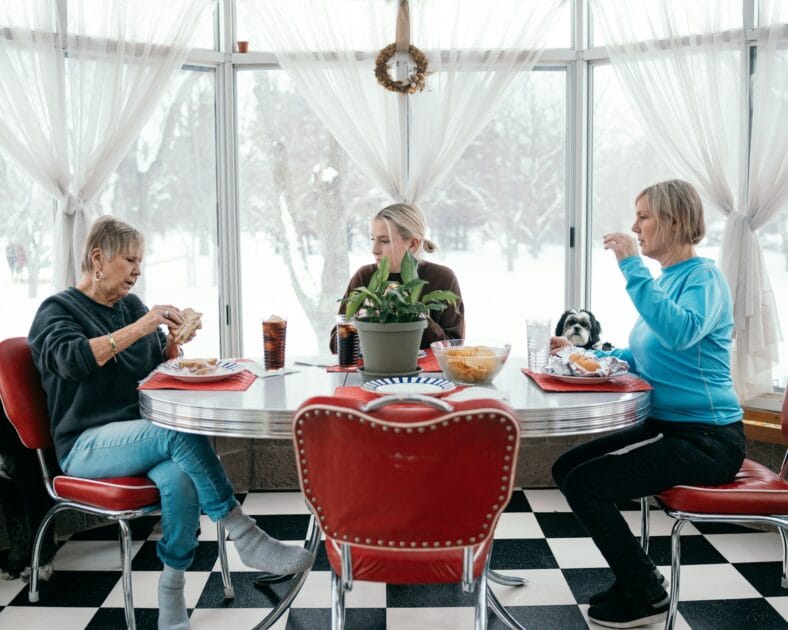
One of the first signs my siblings and I noticed with my mom, long before she was diagnosed with dementia, was her changing eating habits. She had always cooked proper meals, not out of passion but because it was something she had done all her life. Even when she was looking after her own mom, who also had dementia, and her dad, she made sure meals were prepared and served.
Over time things shifted. Her meals went from balanced home-cooked dishes to frozen-ready meals, and eventually, she wasn’t cooking much at all. Her diet had become very poor, for instance, some days she was living on a bowl of gravy and peas, which is hardly a meal.
In hindsight, we should have stepped in sooner, but it’s hard to intervene when your parent insists they’re fine. After all, who doesn’t listen to their mother? Still, this taught us an important lesson, changes in eating habits shouldn’t be ignored.
Also Read: 10 Superfoods Health Experts Swear By, and the 5 They Warn Against
2. Difficulty with Mobility
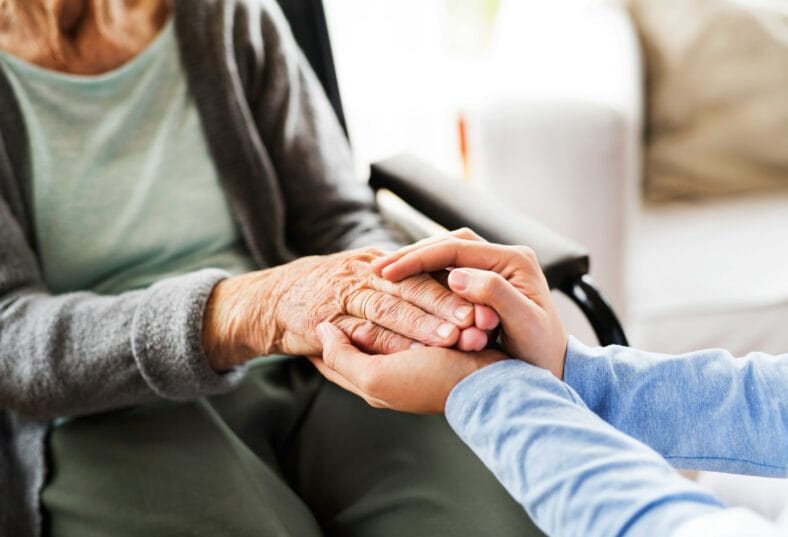
My wife’s mom is a prime example of how ignoring mobility issues early on can lead to greater challenges later in life. More than two decades ago, she began to experience problems with her mobility, but she didn’t seek treatment or make adjustments to address the changes. We didn’t push her either. As she aged, her mobility became more limited, and the severity of her issues increased.
It’s only in the last few years that she’s begun using a mobility scooter, which was a huge help for a while. However, her mobility challenges started decades ago, and if we had all pushed when we were first aware, specifically encouraging her to seek medical advice and explore ways to manage her mobility, she might have been able to maintain a more active and fulfilling lifestyle as she grew older.
This experience shows that seeking help early can make a big difference. It’s not just about preventing falls or injuries when it comes to mobility, it’s about preserving the quality of life and independence of that person.
3. Neglecting Personal Hygiene

My mom often shared stories about her dad and my grandfather. After losing his wife and his pub in a fire, he began to neglect himself. At first, everyone assumed his lack of self-care was due to unhappiness and grief. But the truth was more complicated. He had a physical problem in his brain, which resulted in an aneurysm.
This hammers home the importance of watching for changes in hygiene and self-care and not just acknowledging what you think is the problem. There’s no way to know if early detection would have changed anything for my grandfather, but in someone else’s situation, stepping in sooner might make a difference.
If you notice an elderly family member starting to let themselves go, don’t dismiss it as laziness or sadness. Keep checking in on them as it could be time to intervene and explore whether something else is causing this change.
4. Not Using Prescribed Medications

Looping back to my mom, there was a moment when my sister discovered unused medications that my mom was supposed to be taking daily. It wasn’t hidden well, and it wasn’t a one-off occurrence. Each time, we tried different solutions, from organizing her pills in little labeled cabinets to going over daily to ensure she had taken her tablets. Despite our efforts, it didn’t ultimately help my mom, but it taught us the importance of being vigilant about medication.
For many older adults, missing medications can lead to serious health consequences. Being mindful of their medication routines and having the time and effort to check can make all the difference. It’s not something to overlook. You don’t want your loved ones to stop taking critical medications, and often the only way you’ll know if they do is if you take the initiative to stay aware and involved
5. Constant Difficulty with Vision or Hearing
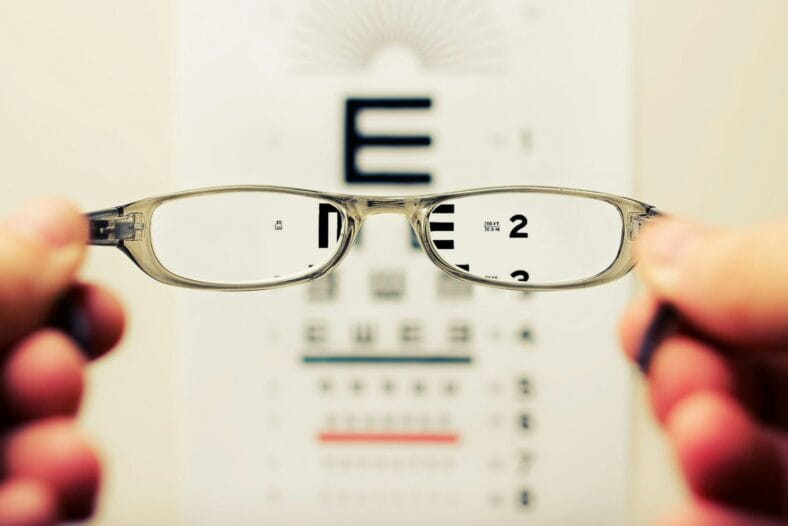
I’m in my 40s and already have some hearing and vision issues, so I know firsthand that these aren’t things you need to monitor constantly. However, when there’s a sudden or significant change, it’s a sign to pay attention. For example, you might notice your parents struggling to read the fine print on labels when they never had trouble before, or you realize their TV volume is cranked up so high it’s uncomfortable for everyone else.
These are signs we’ve encountered with both my mom and my parents-in-law. The challenge is knowing when to step in, especially before the changes become dangerous. Bad eyesight, for instance, can make driving risky, and hearing issues can lead to missing important conversations with doctors or vital alarms.
It’s important to strike a balance. So be vigilant without being overbearing. You don’t want them to feel incapable, or overly dependent as it can end in arguments (as I’ve found out in the past).
6. Struggling with Decision-Making
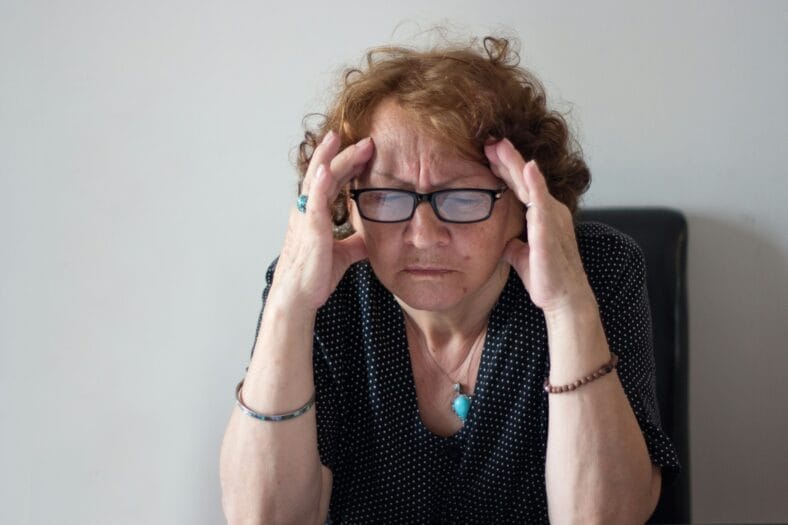
I’ve never seen this firsthand with my mom or my parents-in-law. However, I’ve seen this struggle countless times in the care homes where my mom has stayed. It’s also something the nurses who help with my mom’s care have specifically pointed out to us as something to previously watch for in each other, especially as dementia runs in our family. If they’re saying to watch for it, I’d recommend you do the same.
Struggling with decision-making can show up in small, everyday choices. For example, your parent might spend an unusually long time deciding what to wear, become indecisive about what to eat for lunch, or repeatedly ask others to make choices for them, even about things they once handled easily.
These seemingly minor struggles could indicate early signs of cognitive decline or that they’re overwhelmed. It’s worth paying attention, as catching things early may help stop issues from snowballing in dangerous ways.
7. Unpaid Bills or Financial Issues
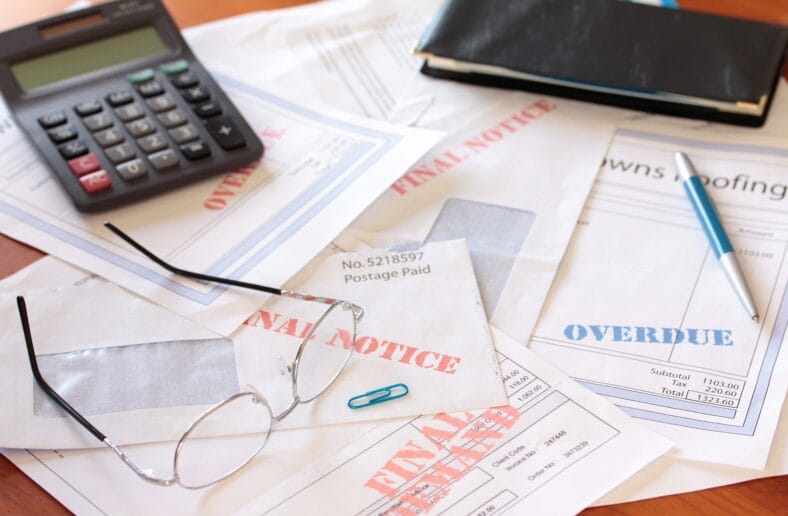
My mom had a habit of going to ATMs, withdrawing the maximum cash allowed, and waddling around town with it. In today’s world, that’s unsafe. Thankfully, nothing bad ever happened to her, but we’ve all heard stories of older people being preyed upon and no one wants to think like that about their parents.
Therefore, it’s essential to pay attention if you find signs like unpaid bills piling up, random envelopes of cash stashed around the house, or other financial oddities. These could indicate forgetfulness, confusion, or even susceptibility to financial scams. Asking questions and stepping in early can prevent your parents from being taken advantage of or from small financial missteps turning into larger, harder-to-solve problems.
A friend once shared a story with me about their parent being scammed out of a significant amount of money. The financial loss was devastating, but the emotional toll was even worse. Their parent lost confidence in themselves, and that led to a rapid decline in both their mental and emotional well-being. It’s a harsh reminder that safeguarding your loved ones’ financial independence is about much more than money, it’s about protecting their dignity
Explore More: Maximizing Your 401(k): 10 Essential Tips for Busy Parents
8. Neglecting Social Activities

If your loved one was once a social butterfly, a sudden decline in their social interactions or an abrupt stop altogether can be a clear sign that something is wrong. This change could stem from many reasons, such as the loss of friends, physical discomfort, or even mobility challenges. Whatever the cause, it’s important to address it, as staying active and engaged is vital for mental and emotional well-being.
Social activity isn’t just about companionship, it provides structure, joy, and a sense of purpose. When these interactions disappear, your loved one might risk falling into a slump, which can lead to isolation, loneliness, or depression. Helping them stay connected, whether it’s through visits, encouraging outings, or introducing new hobbies, can make a significant difference in their overall quality of life.
9. Unsafe Driving

If you get into the car with your loved one and notice anything unusual, whether it’s driving at an unusually slow pace, missing turns, or even getting lost, it’s important to step in. These signs could point to a variety of issues, from something simple like needing updated glasses to more serious cognitive problems. Regardless of the cause, unsafe driving is a risk that can’t be ignored. The last thing you want is for your loved one to be involved in an accident, putting themselves or others in harm’s way.
My brother noticed problems with my mom’s driving and took action. It wasn’t an easy conversation to have, and it’s not a situation anyone wants to face, but it was the right thing to do. Playing it safe, even if it’s uncomfortable, is always better when people’s lives are at risk. Addressing the issue early can help ensure your loved one’s safety and give them time to adjust to alternative ways of getting around.
10. Unexplained Hoarding

My wife likes to joke that I’m a hoarder, but in truth, I’m more of a collector, I have no problem letting things go when needed. However, I’ve seen firsthand where hoarding becomes a real issue. Irrationally accumulating newspapers, broken items, or even empty boxes is a clear sign of unexplained hoarding. This behavior can stem from emotional struggles, memory problems, or conditions like OCD. In my experience, it’s often tied to emotional challenges or coping mechanisms, but regardless of the cause, it’s unhealthy and can lead to unsafe living environments for older adults.
Hoarding becomes especially dangerous when combined with declining eyesight, memory loss, or mobility issues. If you notice it, it’s important to start looking for solutions. In situations I’ve encountered, we were lucky enough to distract the person and clear some of the clutter without too much resistance. Yes, it always caused some frustration and took significant time and effort, but it was worth it. Ignoring the problem could lead to kitchens or bathrooms becoming unusable, which can quickly cause eating issues or hygiene problems. Additionally, hoarding can result in hazards that could result in accidents. So always keep an eye out for bruises, bumps, and limps too.
If hoarding is present, don’t ignore it. Step in where you can and help create a safer and more manageable environment for your loved one.
Explore More: How to Make a Family Tree: Craft Ideas for the Whole Family
Explore More About:Health and Wellness